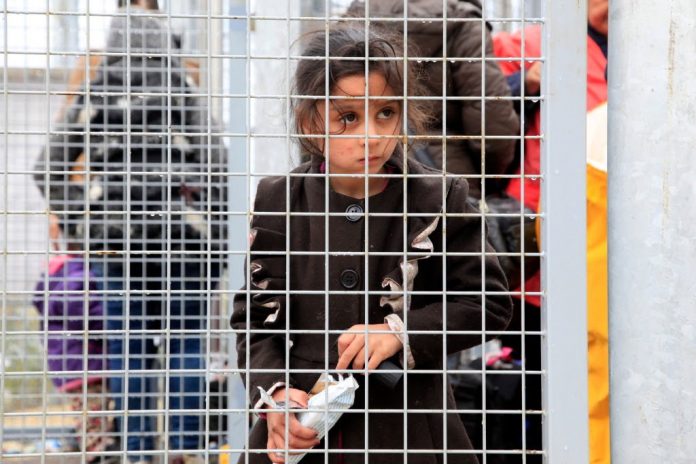A refugee may be apprehended anywhere in Hungary and be pushed back to Serbia without being able to launch an asylum procedure.
Only those who enter Hungary in one of the two transit zones may apply for asylum. Yet, their chances are slim.
According to a report in openDemocracy, only two persons are allowed to enter every day – one per zone. This means that families must remain on the other side of the border.
“Back in the days, we would have called these zones concentration camps,” notes Felix Bender, a doctoral candidate at the Central European University in Budapest, who wrote the article. “Now, the barbed-wire-surrounded container camps that are guarded by men with guns are not referred to as such.”
“The government of Hungary makes sure to emphasise that they do not detain refugees. After all, the imprisoned refugees may leave the zone any time – through a door that leads back to Serbia.”
Bender questions why the European Union and its member states remain quiet.
His answer: “The answer is as simple as it is hard to bear. Core EU member states profit from Hungary’s policies towards refugees. Sure, the EU commission has launched two infringement procedures against Hungary. Yet, none of them condemned the treatment of refugees at its borders. None concern the fact that it has become virtually impossible for men like Abdullah to apply for asylum.”
According to Bender, Hungary’s “cruel policy towards refugees” plays into the hands of other EU member states.
“They turn their eyes from the violation of human rights and the violation of the right to seek asylum, as long as Hungary’s policies keep away the refugees from their doorstep… It is a sad ‘win-win’ situation. Orban is allowed to prove that he is the sole protector of Europe’s ‘homelands and Christian culture’, as he has proudly said in his latest address to the nation, while politicians such as [German Chancellor] Angela Merkel may simultaneously proclaim that in their countries, the right to seek asylum represents a fundamental principle that allows for no compromise.”

